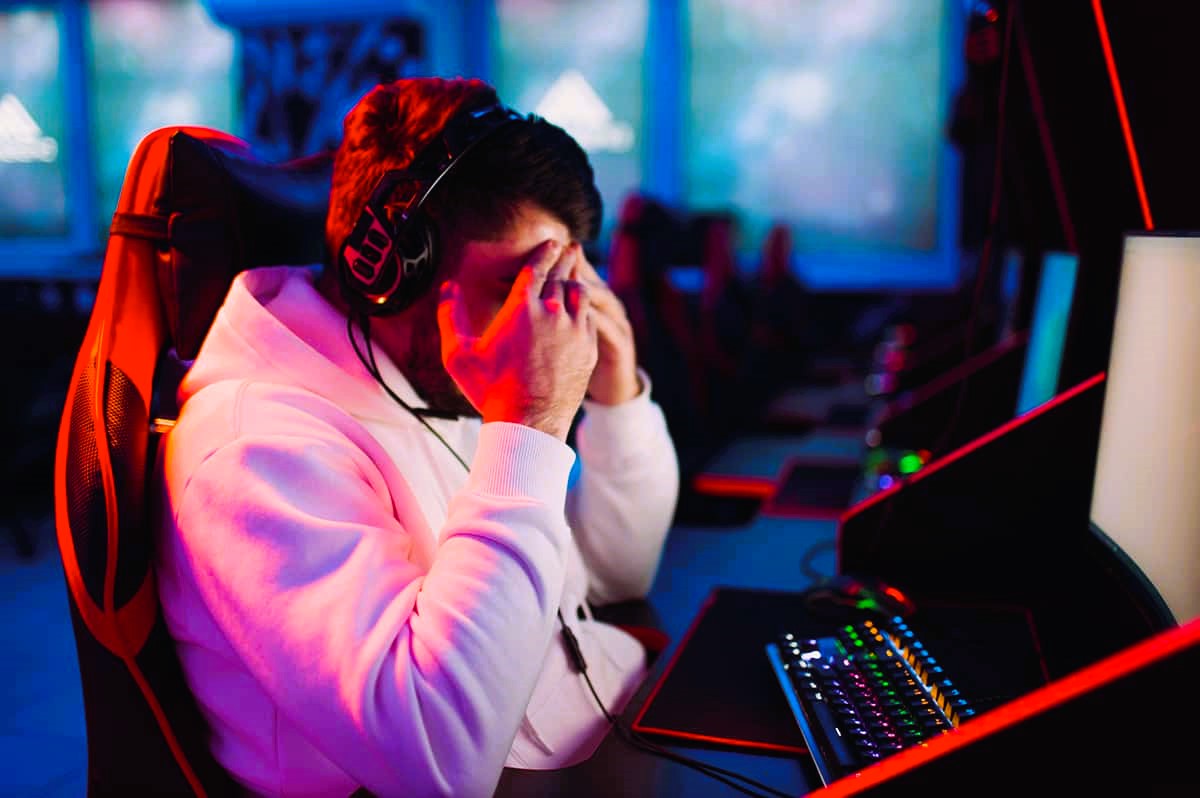Esports has become a highly competitive and demanding industry, where players are constantly under pressure to perform at their best. The intense training, long hours of gameplay, and the expectations to maintain peak performance can take a toll on mental and physical health. One of the most common challenges esports players face is burnout. Burnout not only affects performance but can also have long-term consequences on a player’s career and well-being. In this article, we’ll explore what burnout is, how it affects esports players, and strategies for both preventing and recovering from it.
1. What is Burnout?
Burnout is a state of emotional, physical, and mental exhaustion caused by prolonged stress and overwork. In the context of esports, it often occurs when players experience extreme fatigue from the pressures of competing in tournaments, constantly improving their skills, and maintaining a rigorous practice schedule. It is characterized by feelings of detachment, lack of motivation, irritability, and an overall decrease in performance.
The high-stakes nature of esports, combined with the constant need for improvement, can create a perfect storm for burnout. Players often push themselves to the limit in pursuit of victory, neglecting rest and recovery in the process. Over time, this can lead to a complete breakdown, affecting not only their performance in-game but their personal well-being as well.
2. Signs and Symptoms of Burnout
Recognizing the signs of burnout early is crucial for prevention and recovery. Some common symptoms of burnout include:
- Physical Fatigue: Persistent exhaustion despite adequate sleep, often accompanied by muscle tension and headaches.
- Mental Fatigue: Difficulty concentrating, loss of focus, and feeling mentally drained.
- Emotional Exhaustion: Irritability, anxiety, and a lack of enthusiasm for the game.
- Decline in Performance: A noticeable drop in gameplay, reaction times, and decision-making ability.
- Withdrawal: A desire to withdraw from social interactions, training sessions, and tournaments.
If these symptoms persist, it’s important to take action before the situation worsens.
3. Preventing Burnout in Esports
While burnout can feel inevitable at times, there are proactive steps that players can take to prevent it from taking hold:
1. Balanced Training Schedule
It’s important for players to establish a training schedule that includes time for both gameplay and rest. While it’s tempting to practice for hours on end, overtraining can lead to fatigue and burnout. A balanced routine that includes time for physical exercise, mental relaxation, and social activities outside of gaming is essential for long-term success. Read our article on how to combat toxicity and negative thinking in online gaming communities.
2. Focus on Mental Health
Mental health should be a priority in the esports world. Regularly checking in with a mental coach or therapist can help players cope with the stresses of competition. Practices like mindfulness, meditation, and stress management techniques can also be highly effective in preventing burnout.
3. Taking Breaks
Taking short breaks throughout long gaming sessions helps to reset the mind and body. Stepping away from the screen, stretching, or engaging in a different activity for a few minutes can help prevent the fatigue that leads to burnout.
4. Set Realistic Goals
While ambition is important, setting unrealistic expectations can lead to disappointment and stress. Players should set achievable, incremental goals that focus on improvement rather than perfection.
5. Get Enough Sleep
Sleep is critical for recovery and mental sharpness. Players should prioritize getting adequate, high-quality sleep each night to ensure their bodies and minds are well-rested and ready for competition.
4. Recovering from Burnout

If burnout has already taken hold, recovery may take more time and effort. However, it’s not impossible to get back on track. Here are some strategies for recovering from esports burnout:
1. Rest and Recovery
The first step in recovery is to allow your mind and body to rest. This may mean taking time off from competitive play and reducing training hours. Rest is essential for recharging mental and physical energy.
2. Reevaluate Your Training Routine
Once you’ve had some time to rest, take a closer look at your training schedule. It may need to be adjusted to create more balance and prevent future burnout. Incorporate more rest days and focus on quality training rather than quantity.
3. Seek Support
Sometimes, talking to a teammate, coach, or mental health professional can help you regain perspective. Talking through your feelings and concerns can ease emotional tension and help you strategize ways to cope with the pressure.
4. Reconnect with Your Passion
Burnout can cause players to lose sight of why they started gaming in the first place. Reconnecting with your passion for gaming—whether it’s by playing casually, watching your favorite streamers, or exploring new games—can reignite your excitement and motivation.
5. Gradual Return to Competition
Returning to competitive play should be a gradual process. Instead of jumping straight into intense tournaments, consider easing back in by participating in casual matches or smaller competitions. This allows for a smoother transition and helps build confidence as you recover.
5. The Importance of a Supportive Environment
The role of a supportive team and environment cannot be overstated when it comes to preventing and recovering from burnout. Teams that prioritize their players’ mental health, promote healthy work-life balance, and encourage open communication can help reduce the likelihood of burnout. A positive team atmosphere allows players to share their struggles, learn from one another, and work together toward maintaining mental well-being.
Burnout is a serious concern in esports, but it’s also something that can be managed with the right approach. By recognizing the signs early, preventing burnout through balanced routines, and focusing on recovery, players can ensure that their careers remain sustainable and successful in the long run.
For more information on managing stress and improving well-being in high-performance environments, you can explore this article on burnout prevention.




